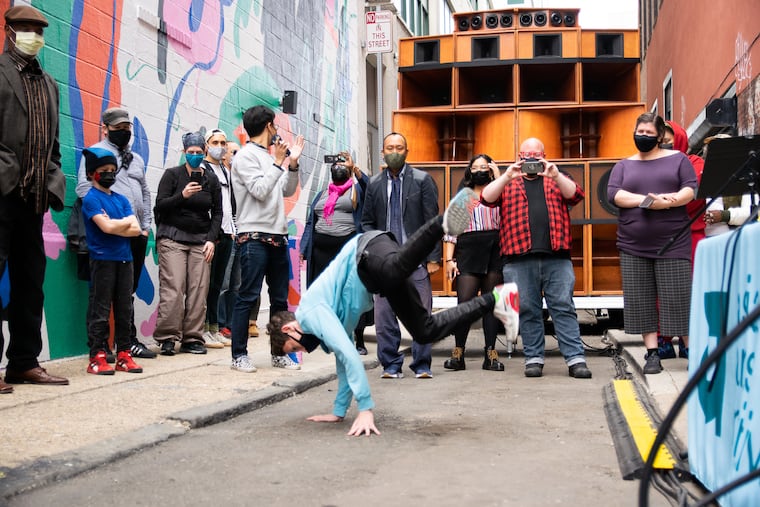Philadelphia Contemporary announces new leaders, staff cuts
Founder Harry Philbrick takes on a new role as director emeritus and board chair.

Philadelphia Contemporary, the nomadic arts organization founded by Harry Philbrick in 2016, will have three new leaders take the helm this week. Yolanda Wisher, the group’s co-director of curatorial programs and curator of spoken word, and Rob Blackson, co-director of curatorial programs and curator of citywide initiatives, will become co-artistic directors. Director of advancement J.J. El-Far will be promoted to managing director.
“I have so much admiration for J.J. and Rob and Yolanda. I just knew that these are really talented people who understand the unique qualities of Philadelphia Contemporary,” said Philbrick, who will step into a new role as director emeritus and board chair. On Tuesday, Philbrick was named interim executive director of the Fabric Workshop and Museum in Center City, replacing Christina Vassallo. He’ll still be involved in long-term planning for Philadelphia Contemporary.
Philadelphia Contemporary also announced that post-pandemic organizational restructuring has led to staff cuts, with four unspecified positions being eliminated.
From installations like Jean Shin’s Freshwater, which examined freshwater mussels in a sculpture along the Delaware River, to major cultural events, like the Black Joy Symposium in 2021 and annual block parties for the Asian Arts Initiative, Philadelphia Contemporary is known for its community-minded work.
El-Far, who previously cofounded and led the Harlem Arts Festival, has spent years championing social justice-centered artwork. As managing director, she plans to keep growing the group’s partnerships. “Eventually, I’d like to see our organization finding its own voice in a way that is — no offense to Harry — but distinct from what Harry has brought to it so far,” she said.
Though Philbrick previously planned to open an art gallery on a barge, he says that project is on hold, citing inflation, supply-chain disruptions, and “philanthropic realities.” El-Far says in the meantime, they are looking to create pop-up spaces in underutilized venues, true to the organization’s nomadic roots. “That has been a real hallmark for us, and it’s something we don’t ever want to lose,” Philbrick said.
Wisher joined Philadelphia Contemporary in 2018 after serving as the city’s poet laureate. Since first collaborating with Philbrick in 2017 to host a poetry festival at 30th Street Station, Wisher says she has “been finding ways to elevate Philadelphia poetry to the level of the way we regard, fund, and resource contemporary art in the city.” One example is the “Healing Verse Poetry Line,” created by social worker and fellowpoet laureate Trapeta B. Mayson, which provides uplifting poetry verses on a hotline with new poems up each week. Wisher and Mayson are both artists-in-residence at Jefferson University, where they run poetry workshops for medical students and patients in cancer-support groups.
“One of the traits of Philadelphia Contemporary’s DNA is to recognize the arts where they already exist across Philly, and allow that in and of itself to be the culture that can share the work,” said Blackson. He joined the organization in 2021 after a decade leading Temple Contemporary as its founding director.
As co-artistic directors, Wisher and Blackson are excited to continue their already-close relationship: She calls him her “work husband.” “For me, this transition feels like the title is catching up with the work,” said Wisher.